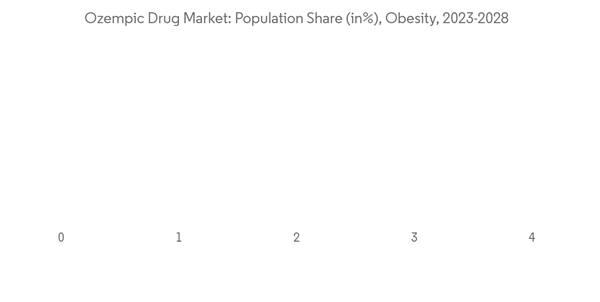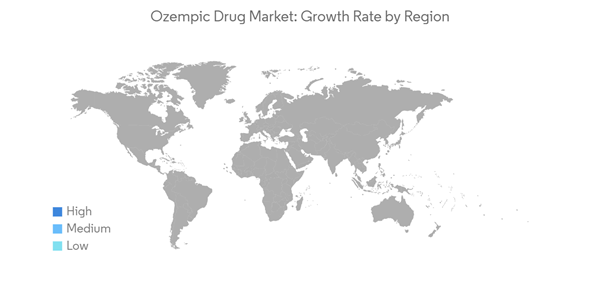Weight loss medications can serve as a highly efficient aid for individuals who have faced difficulties in shedding weight independently. Nevertheless, it is crucial to acknowledge that they are not a miraculous solution and should be complemented with a balanced diet and regular exercise. Engaging in a conversation with a doctor regarding the most suitable weight loss medication for specific needs is imperative, as it allows to assess the potential risks and advantages associated with the treatment.
Jardiance does not have approval for weight loss; however, weight loss may occur as a potential side effect of the medication. Jardiance is believed to induce weight loss by facilitating the elimination of sugar from the body. By inhibiting the kidneys from reabsorbing glucose (blood sugar), Jardiance causes the sugar, along with its associated calories, to be excreted in the urine. Consequently, the body is left with a reduced calorie load to metabolize, potentially resulting in weight loss. Ozempic is an injectable medication that is administered once a week and functions by imitating the actions of a hormone known as glucagon-like peptide-1 (GLP-1), which occurs naturally in the body. This hormone plays a crucial role in controlling both blood sugar levels and appetite regulation. Ozempic has demonstrated significant efficacy in reducing blood sugar levels among individuals diagnosed with type 2 diabetes during clinical trials. According to a particular study, Ozempic successfully decreased A1C levels by an average of 1.5%. A1C serves as a metric for assessing the average blood sugar levels over a three-month period.
Ozempic has demonstrated its efficacy in facilitating weight reduction among individuals diagnosed with type 2 diabetes. According to a study, individuals using Ozempic experienced an average weight loss of 14% over the course of one year.
Ozempic is generally considered to be a well-tolerated and safe medication. However, it is important to note that there are some common side effects associated with its use, such as nausea, vomiting, diarrhea, abdominal pain, and constipation. These side effects are typically mild in nature and tend to resolve on their own within a few weeks. Experts agree that Ozempic is an effective and safe treatment option for individuals with type 2 diabetes. Its ability to lower blood sugar levels and promote weight loss has made it a popular choice among those with this condition. It is worth mentioning that the percentage of individuals using Ozempic for type 2 diabetes management may vary depending on the country and the specific healthcare system in place.
Research has shown that semaglutide, the active ingredient in Ozempic, is effective for weight loss. However, it is important for individuals to continue making lifestyle changes, such as maintaining a healthy diet and engaging in regular exercise, to support their weight loss journey. It should be noted that Ozempic itself is not approved for weight loss, but semaglutide is approved for weight loss under the name Wegovy. It is worth mentioning that Ozempic contains a smaller dose of semaglutide compared to Wegovy. Unlike insulin, Ozempic helps the pancreas produce more insulin only when blood sugar levels are high, and it rarely causes low blood sugar. In a clinical trial sponsored by Novo Nordisk, nearly 2,000 adults with excess weight or obesity, who did not have diabetes, were given semaglutide or a placebo along with lifestyle intervention. The group that received semaglutide lost 14.9% of their body weight, while the placebo group only lost 2.4%.
Weight Loss Diabetes Drug Market Trends
Increasing Obesity Population in world wide is driving the market in the forecast period.
The World Obesity Federation has recently released the World Obesity Atlas 2022, which projects that by 2030, approximately one billion people worldwide will be affected by obesity. This includes 1 in 5 women and 1 in 7 men. Furthermore, the World Obesity Atlas 2023, also published by the World Obesity Federation, predicts that if preventive and treatment measures are not improved, the economic impact of overweight and obesity will reach $4.32 trillion annually by 2035. This accounts for nearly 3% of the global GDP, which is comparable to the impact of COVID-19 in 2020. On World Obesity Day, the World Obesity Federation unveiled a new report from the World Obesity Atlas, stating that based on current trends, 51% of the global population will be affected by overweight or obesity by 2035. The report emphasizes the significance of national action plans and Universal Health Coverage in implementing the new WHO Recommendations for the Prevention and Management of Obesity.The prevalence of obesity is a significant issue in the public health sector, impacting nearly every nation worldwide. Over the past thirty years, obesity rates have been on a steady incline, with more individuals living with obesity than those who are underweight in almost every region. If this trend persists, it is projected that up to 1 billion adults, or 12% of the global population, will be affected by obesity by 2025.
A report released by the World Obesity Federation (WOF) in March 2023 predicts that by 2035, more than half of the world's population, which is over 4 billion people, will be obese. The increase in obesity is attributed to changes in diet worldwide, according to Dana Hunnes, PhD, an assistant professor at the UCLA Fielding School of Public Health and a clinical inpatient dietitian at Ronald Reagan UCLA Medical Center. The report also highlights that obesity rates are rapidly increasing among children, particularly in lower-income countries, and could affect over 200 million boys and 170 million girls in the next decade.
In the first half of 2023, Novo Nordisk generated approximately $14 billion in sales from its diabetes and obesity medications. According to Trilliant Health, prescriptions for these weight-loss drugs have increased by 300% since early 2020, with over 9 million written in the U.S. during the last three months of 2022 alone. The high demand has caused shortages of Ozempic, Wegovy, and Mounjaro, leading to competition among patients with type 2 diabetes and those seeking to lose weight. Additionally, spas, internet suppliers, and compounding pharmacies are all vying for a share of the Ozempic market.
Obesity rates are on the rise and it is projected that by 2030, the global number of individuals with obesity will have doubled since 2010. Although the lack of progress in reducing obesity is a concern worldwide, each region has its own unique situation. In certain parts of Europe and North America, obesity rates are beginning to level off, albeit at a high level. However, in Low- and Middle-Income Countries (LMICs) as well as Small Island Developing States (SIDS), obesity is increasing at a rapid pace, further burdening countries already dealing with malnutrition. The highest rates of obesity are still observed in the WHO Americas region for both men and women. Nevertheless, while the Americas are expected to experience a 1.5-fold increase between 2010 and 2030, the numbers in Africa are projected to triple by 2030. This means that the number of obese men in Africa is estimated to rise from 8 million in 2010 to 27 million in 2030, and the number of obese women is expected to increase from 26 million in 2010 to 74 million in 2030. Asia and Africa together account for nearly three-quarters of all overweight children worldwide.
Because of this, the above factors are likely to drive segment growth in the market over the next few years.
North America is anticipated to dominate the market and is projected to maintain its dominance throughout the forecast period.
Weight loss diabetes drugs are widely used medication in North America, has seen a steady increase in its user base year after year. In the year 2022 alone, more than 1 million prescriptions for Ozempic were filled in the United States. This upward trend is expected to persist in 2023 and beyond. A study published in the esteemed journal Diabetes Care revealed that approximately 10% of individuals diagnosed with type 2 diabetes in the United States relied on Ozempic (semaglutide) as a treatment option in 2022. The Centers for Disease Control and Prevention (CDC) reports that around 42% of American adults are classified as obese. Consequently, individuals have been exploring various methods and medications in their quest for an ideal weight loss solution.Until recently, healthcare providers had limited options to offer patients in the face of the escalating obesity epidemic in the United States and around the world. However, a multitude of clinical trials are now underway to investigate novel pharmacotherapies that target the underlying mechanisms of this disease. Two such medications, retatrutide and tirzepatide [Mounjaro], are currently being evaluated by researchers. While tirzepatide is already approved by the FDA for the treatment of type 2 diabetes, both drugs have shown remarkable efficacy in treating obesity and type 2 diabetes in clinical trials. Although they have not yet received FDA approval for chronic weight management, these medications hold great promise and may eventually surpass the current market-dominating drugs.
In North America, the majority of individuals using Ozempic are those with type 2 diabetes. However, there is a growing number of people who are also utilizing Ozempic for weight loss purposes. Ozempic has demonstrated significant effectiveness in promoting weight loss and has become a popular choice for individuals who have previously tried other weight loss medications without success.
Ozempic has rapidly gained popularity in North America as a medication for diabetes and weight loss. It is a safe and effective option that aids individuals in reaching their health objectives. There are several factors contributing to its widespread popularity in the region. Firstly, it effectively lowers blood sugar levels and facilitates weight loss. Additionally, its once-weekly injectable form makes it convenient and user-friendly. Furthermore, it boasts a relatively low occurrence of side effects. Lastly, it is covered by numerous insurance plans, making it accessible to a larger population.
The sales of Ozempic have witnessed a significant surge of 77% in Danish kroner and 61% at CER, amounting to DKK 59,750 million (USD 8,560.91 million). The growth in sales can be attributed to the operations in North America and International markets. Ozempic has been launched in 75 countries, but the sales growth has led to periodic supply constraints and drug shortage notifications across different regions. Ozempic is a once-weekly injectable medication that is effective in treating type 2 diabetes and obesity by lowering blood sugar levels and promoting weight loss. Due to its efficacy and minimal side effects, Ozempic is expected to gain more popularity in the future.
The aforementioned factors are expected to propel the expansion of the segment in the market in the coming years.
Weight Loss Diabetes Drug Industry Overview
The Weight Loss Diabetes Drug Market is moderately consolidated with few major palyer like Eli Lilly, NovoNordisk, Boehringer Ingelheim, Amylin Pharmaceuticals, Harman Finochem, and they has it due to the presence of companies operating globally and regionally.Additional Benefits:
- The market estimate (ME) sheet in Excel format
- 3 months of analyst support
This product will be delivered within 2 business days.










